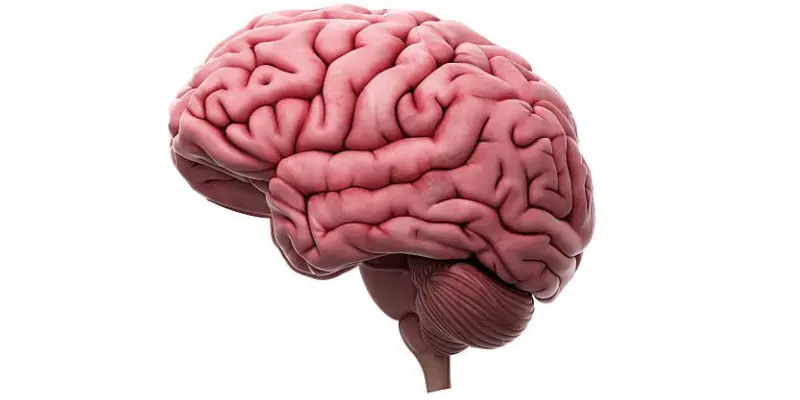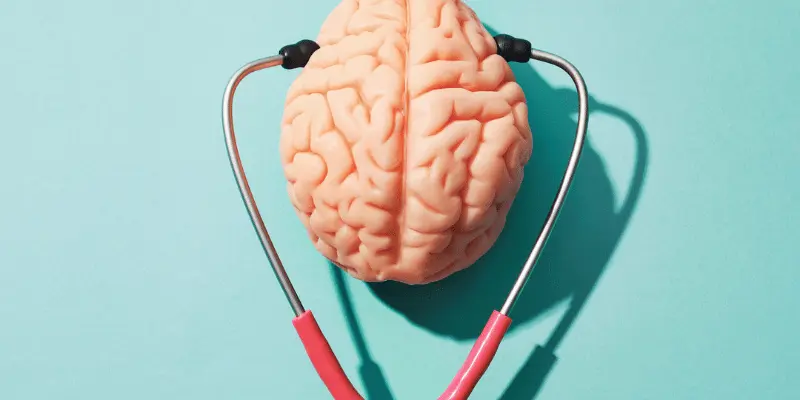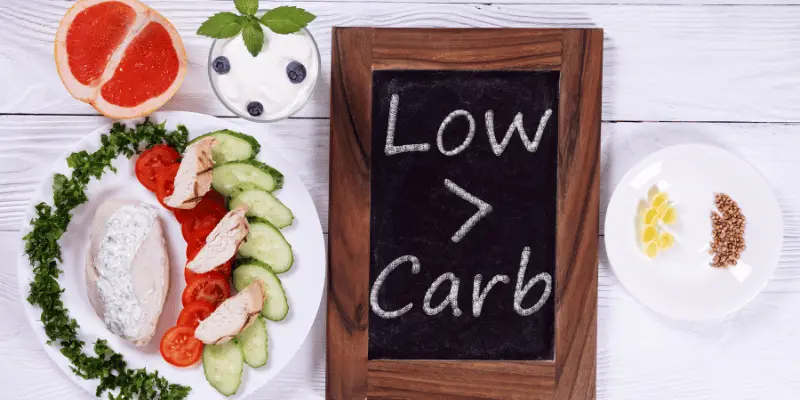Carbs have been perceived as bad for many years. Some people, especially those running away from weight gain, have considered this class of food as unhealthy. In an attempt to fight off weight and cut off carbs, they have adopted the ketogenic lifestyle. To them, carbs affect mental health.

Of course, what you eat has brain health consequences both in short and long terms. But do carbs affect mental clarity? We cannot just simply say yes or no. There are some facts we will be taking a look at in this blog post. These facts will help us reach a reasonable conclusion. Let us start this blog post by defining the keyword – carbohydrates.
Carbohydrates – What are they? Do carbs affect mental clarity?

Carbohydrates, simply referred to as carbs, are actually produced by plants. Where can we find them? They are all around you – dietary carbohydrates and starches in food, dairy products in the form of lactose and even in fruits and drinks. Common examples of high-carb foods are cereals, rice, and potatoes.
And yes, carbs affect the optimal function of the brain. Here are some that may have not occurred to you.
Carbohydrates – A basic nutrient that provides energy to the brain/body
More than any other part of the body, the brains demand more energy. The carbs you consume are usually broken down into what is called glucose. It is this glucose that acts as fuel for the brain and supports its overall health.
Thinking, memory, and learning are associated with glucose levels. If enough glucose does not get to the brain, there would be poor thinking and learning ability. In fact, there will be a communication breakdown. This is because insufficient glucose will tamper with the production of neurotransmitters, the brain’s chemical messenger.
Additionally, low blood sugar can lead to loss of energy for brain function and this may result in poor attention and cognitive function.
Refined carbs may contribute to brain fog and reduced mental clarity
Refined carbs are sugars and processed grains that contain empty calories. They are diet without nutrients. They are fully loaded with a high glycemic index. These kind of carbs are very common. Bread, rice, and drinks have them.
When people eat refined carbs in excess, they have high glucose levels. The high glucose causes mental fogginess. Consumption of high amounts of carbohydrates also results in something known as a sugar crash. And that is not all. Sugar crash comes with problems such decrease in mental clarity and problems with memory retention.
Read Also: Celebrities Who Love the Keto Diet
Low-carb diet and its effect on mental health

It is a popular approach that people who experience mental health problems seek medical help from medical professionals. That is not bad but another way to help these individuals to change the brain chemistry is through food – the nutrients in the food we eat. Evidence suggests that there is a link between nutrition and health.
One study confirmed that the low-carb diet, also known as the keto diet, can reduce major depression by some 20%. Another study suggests that low intake of carbs may be connected to improved mental health.
Limiting carb intake may help some people feel sharper mentally
Some people claim that when they take in low carbs, they are able to think more clearly and they have mental energy. This claim is not baseless. Low carb intake can help to improve cognitive function, making people to be mentally sharp. Low low-carb diet can make the brain function efficiently, leading to concentration and mental agility. This diet can also support mental clarity by reducing inflammation on the brain and oxidative stress. This contributes to a healthier brain environment.
For others, a low-carb diet may negatively impact mood and cognition
Before you start praising the low-carb diet, here is a fact. An extremely low-carb diet may actually worsen mood disorders including depression and anxiety. A study conducted in the US found out that women who went on very low-carb diets experienced performed poorly in memory rest. When carbs were later introduced to their meal, their memory and thinking skills returned to normal.
The brain needs glucose to function properly. However, the brain cannot store glucose so they rely on continuous supply through the bloodstream. Cutting off carbs would reduce the brain’s inability to get glucose and this will affect its function.
A Simple Guide to the Science Behind Carbohydrates and Mental Stability

For the sake of learning, carbohydrates are made up of two parts. What are they? The simple carbohydrates and complex carbohydrates are the names of the parts. Whichever form you eat is converted into glucose. This is the energy source for the brain. When your glucose level is low, the brain is left without fuel and it makes it prone to mood changes.
Simple carbs are found in snacks, sweets and drinks, especially sugary drinks. They provide the body with energy for a short time. Complex carbs include starchy foods and fibers. They provide energy for a long time. Fiber promotes a healthy gut, which is related to better mental health, as it supports the production of 95% of serotonin.
Include the following things in your life to leave the brain with fuel:
- Add fat and protein to your diet. Dietary fats are good for the regulation of blood sugar levels.
- Reduce your intake of simple carbs. They might tend to give the brain lots of glucose all at once but there is a potential danger. Due to the large supply of glucose, the body will store the glucose for later and leave the brain without fuel. To put it in simple terms, you may experience what is called a ‘sugar crash’
- Try not to starve yourself.
How to optimize carb intake for mental clarity
Do not fall for the lie that you have to eliminate carbs from your diet. Carbs are not your enemy. When you safely incorporate it into your meal, you can gain amazing benefits.
Focus on complex, fiber-rich carbs like vegetables, fruits and whole grains
Complex carbs have a role in boosting one’s mood and mental health. It takes a longer time to break them down into sugar, thus they are able to create a stable blood sugar. They give the brain the glucose it needs to sustain itself and function well. Getting complex carbs is not complex at all. Whole grains, beans, and fruits are complex carbs.
Do not depend on complex carbs alone, though. And consuming it in moderation is important. Pair your carbs with a high-fat diet. If you love milk, no problem. You can just opt for the ones that are low in refined carbohydrates like almond milk.
Time carb intake to support energy, mood, and workout performance
Ever heard of carb timing? It refers to how you schedule your carbohydrate intake around your workout. Some people believe that it is best to eat carbs immediately before or after a workout as it is a good way to maximize performance. This common approach is meant to top off glycogen stores and elevate your energy level. This helps to quicken recovery and improve performance in future workouts.
You can choose to consume carbs in the evening so you can reap the benefits of sustained mental energy during the busy day. When you consume a few carbs during the day and save them up for later, it helps to prevent mid-afternoon slump and brain fog. This approach helps you stay more alert and focused.
Consider individual factors like metabolic health when setting carb goals
Setting carb goals is an effective way to manage health and achieve great results. But here are some crucial factors to be taken into consideration.
One factor is overall metabolic health. Individual factors such as insulin levels, blood sugar levels, and cholesterol levels should also be looked into when setting carb goals. When you can properly track these, you can know how your body responds to various carb levels.
If you have any medical issues like type 2 diabetes or cardiovascular disease or you are at risk of coronary heart disease, you should include them in your consideration when setting carb goals.
The bottom line: Balance carbs for optimal mental and physical health

For the point of emphasis, carbs are not your enemy. You do not have to totally ban them from your diet. They could actually be your best pal when you incorporate them into your meal in a balanced way.
So how much carbs should you eat daily? It is generally recommended that an adult should consume calories from carbohydrates. About 45-65% of their daily caloric intake is enough to make them hale and hearty. By rough estimation, that is 225-325 grams of carbs in a 2,000-calorie diet.
Stay away from refined carbs, refined grains, and added sugars even if they are from natural sources. A good example is honey. Go for minimally processed carb foods like leafy veggies. Sprinkle into your lifestyle protein-rich food. They will support a healthy glucose level. When the night comes, reduce your intake of carbohydrates. Consume more complex carbs as they help your body’s metabolism but do not overdo it.
After you have consumed a high-carbohydrate meal, exercise. Opt for low-carb alternatives for milk, snacks, nuts, and fruits. Consider net carb count. Net carbs refer to a number of carbs broken down into sugar in the bloodstream. Be careful of packaged food in the market even though they tend to have low net carb and added fiber. They may also affect your glycogen level.
Read Also: What are the golden rules of the keto diet for a beginner?
Actual Dietary Recommendations for Carbohydrates
Many organizations have come up with various recommendations for carb intake for adults and children. We will be taking a look at some of them in numbered form:
- Children and adults should consume up to 130 grams of carbs per day. With this amount, the brain can function properly. Just the brain, not the body. They can consume more if they want the body to perform daily activities.
- About 45-65% of calories should be consumed per day. If we are to calculate this, that is to say, in a day, a person should consume about 900-1300 carbs following a 2,000 kilocalorie diet.
- The USDA Dietary Guidelines also gave its own recommendation. For optimal health, added sugars should be consumed in a very minimum quantity. Precisely speaking, you should eat nothing more than 10% of total calories.
- It is also advised that a person following a 1,000-calorie diet should consume 14 grams of dietary fiber. This, is believed, will keep the body healthy.
- The World Health Organization was not left out on this subject. It released updated guidelines which included that carbohydrate intake should comprise about 40-70% of total calorie intake.
The connection between Low carbohydrate diets and psychiatric disorders

People suffer a lot from mood and psychiatric disorders. The use of a low-carb diet to tackle these problems has yielded good results. Evidence shows that a low-carb diet can improve health conditions. Right now, many psychiatrists are attempting to use this method to treat their patients.
How do psychiatric disorders and food connect? Psychiatric disorders cause big changes in chemical messenger activity. When someone consumes carbs, the changes are improved and the mood is stabilized.
There are times when chronic inflammation linked to sugar intake is considered a factor in some psychiatric disorders. Low-carb diets can decrease inflammation and improve condition. There are also individuals with mental disorders who are struggling to maintain weight. A Low-carb diet could help improve their brain metabolism.
However, care should be taken when taking the nutritional approach. It is advised not to use it for emergency situations.
Conclusion: A carbohydrate diet can clear brain Fog
So back to the question, do carbs affect mental clarity? It is safe to say that the answer is well-known now. A low carbohydrate diet provides a handful of brain benefits. It can regulate blood glucose levels and reduce instances of brain fog. It can support mental clarity and cognitive function throughout the day. It may even help to prevent brain diseases. Low carbohydrate consumption can boost your memory and overall brain function.
A key to safely using a low carb diet to improve productivity is to go for good carbohydrate quality such as complex carbs. To even make it enriching, include foods that are high in fat and protein. Choose healthy fats like unsaturated fats.
Whether you choose to do the keto lifestyle or not, it is your thing. But do not starve yourself of carbohydrates. You need them. You can consult a nutritionist or dietitian for assistance if need be. Good health to you!
Read Also: Keto vs. Brain Fog: How the Diet Can Transform Your Mental Clarity
FAQ’s:
Q. Why don’t I feel full unless I eat carbs?
A. When you consume less carbs, you are at risk of taking in low or no nutrients. This can make you very hungry and increase your cravings. In addition, the body needs fiber to slow down digestion and fiber is often missed out of the diet when you don’t take carbs.
Q. Do carbs affect mental clarity and reduce focus?
A. Healthy carbs can affect mental clarify in a positive way. In the sense that, it can sharpen your focus. An extreme low-carb or no-carb diet can reduce focus and cognitive function.
Q. Are carbs bad for thinking?
A. Not at all. Carbs give glucose to the brain which it uses for thinking functions.
Q. What kind of food cause brain fog?
Sugar, refined carbs, trans-fats, and alcohol can cause brain fog.
Q. Should I focus more on protein or carbs?
A. You can choose to consume more protein than carbs but do not overdo it. Both are needed for optimal body function.
Q. Is it true that better nutrition could help reduce inflammation and insulin resistance and thereby improve mental health?
That is true. Better nutrition can improve mental health.
Q. It is true that Ketogenic Diets Suppress Appetite?
A. Yes, evidence suggests that the keto diet could help suppress appetite.
Q. Is it true that the ingestion of excessive refined carbs could lead to metabolic disease and mental health disorders?
A. Of course. Overconsumption of refined carbs can make you have anxiety disorders and metabolic dysfunction.
Q. What is the relationship between depression and refined carbs?
A. Effects of highly refined carbs include high blood sugar. This will then trigger a hormonal response to reduce blood sugar levels and result in symptoms of depression.


